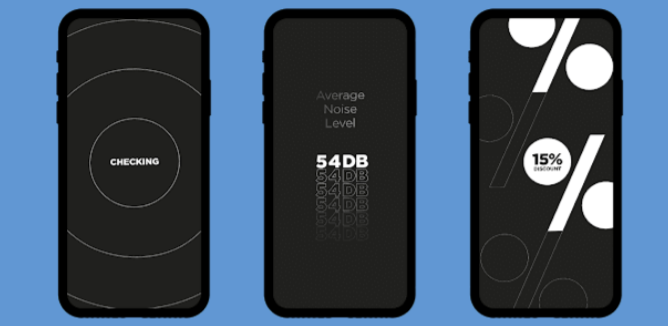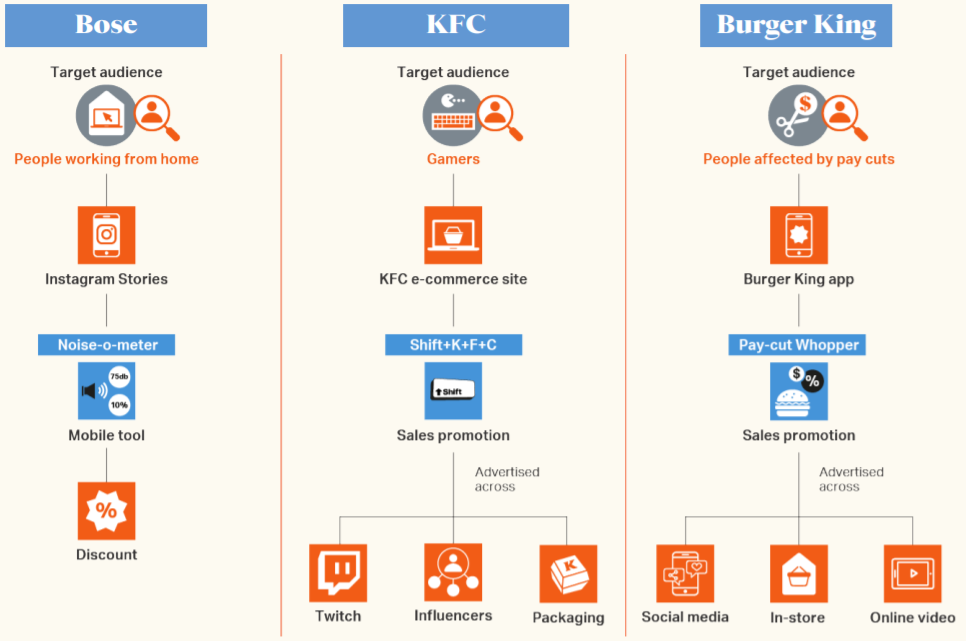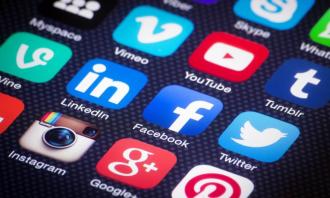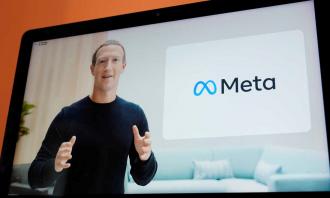


Nissrine Fessikh
15-10-2021 5 min readTargeted advertising is crossing the digital divide
The lockdown has forced brands around the world to double down on their digital presence. This year's WARC Prize for MENA Strategy winners have demonstrated an insightful attitude toward the digital pivot, creating highly targeted experiences.
Bose - which is a key in-store channel - was able to maintain its premium positioning during lockdown with a digital experience targeting work-at-home consumers with personalized discounts. Judge Laura Chaibi, senior consultant, global media at Nielsen Media Middle East, said, "This has shown the way for other brands that might think they can't sell their product online."
Meanwhile, Burger King wanted to boost usage of its app during lockdown. It targeted people who had taken pay cuts and offered them discounts commensurate with their loss. Judge Stewart Morrison, managing director, MENA at FirmDecisions, commented, "It understood the challenge of its consumers and got results without appearing to exploit them. The KFC Grand Prize winner tapped into the world of gaming - an activity that gained popularity during the pandemic - by designing a control mechanism with the players' interests at heart, even down to the smallest detail."
Today's consumers remember how companies and brands responded at the height of the pandemic. Brands that consciously empathized with the emotional needs of their consumers further strengthened their goodwill base and built lasting emotional connections. Digital has become the obvious platform for this, as blockchain has made consumers more connected than ever. Among the winners of this year's WARC MENA Strategy Award were brands that successfully shifted to digital during the pandemic: by showing empathy and embracing agility, they adapted and evolved their business strategy as the crisis unfolded. What they have in common is that they created targeted approaches to digital experiences, generating increased penetration and driving business growth.
Understanding the audience first
KFC Arabia went beyond the usual giveaways and sponsorships with a campaign specifically targeted at the gaming community. It went to great lengths to understand its audience, capitalizing on their distinct habits rather than going against them. Disrupting the conventional customer journey of ordering food, KFC created a cheat code programmed directly into its e-commerce website, shortening the order to just four keystrokes. The disruptive campaign resulted in double-digit sales increases, new incremental users on e-commerce, and, most importantly, strong and unique associations that fostered preference among the gaming community.
Empathy and humanity
With Pay Cut Whopper, Burger King has demonstrated empathy by turning a financial setback into a marketing opportunity. It humanizes the transactional nature of app ordering by adding discount settings that anyone can customize: a simple trust filter that allows users to match their pay cuts to discounts. Burger King took advantage of the situation to humanize its brand while taking a different approach to promoting discounts. The creative innovation led to increased home delivery sales, as well as increases in redemption rates and app downloads.

Rethinking communication models
Bose's Noise-O-Meter shifted the brand's customer experience efforts-historically heavily reliant on in-store visits-to purely digital and social interactions, creating an algorithm that interprets sound data and ambient noise. It cleverly made a compelling case built around the problem of people struggling to work from home due to noise and solved it seamlessly with its noise-canceling headphones. A testament to how brands with traditional approaches to communications can harness the power of digital and e-commerce to create growth opportunities, the campaign resulted in double-digit increases in average weekly online sales of noise-canceling headphones over the campaign period.

Three considerations on pivoting
By delivering targeted, empathetic experiences via digital touchpoints, these brands have not only won in terms of business results, but also built new memory structures for their audiences, which can have a long-term impact on brand equity. As more brands accelerate their digital transformation, marketers must consider three factors:
- Targeted approaches are a "must-have": implement them intentionally and at scale.
- Context and purpose are key to making emotional connections: empathize consistently.
- Data and technology are essential: data offers first-mover advantage, technology enables speed and agility.
Three models of targeted digital experiences

The winning work of Bose, KFC and Burger King was born of a deep understanding of the needs and behaviors of their target audiences. Bose, for example, sought to alleviate a problem for people who work from home by making it easier to access discounts on its noise-canceling headphones. KFC conducted extensive research on gamers and their world to provide a way to order food that would enrich rather than disrupt their gaming experience. Finally, Burger King reached out to those affected by pay cuts during the pandemic, implementing a sales promotion based entirely on trust.
Don't miss any news, subscribe now!
Related articles
Publications recommandées





